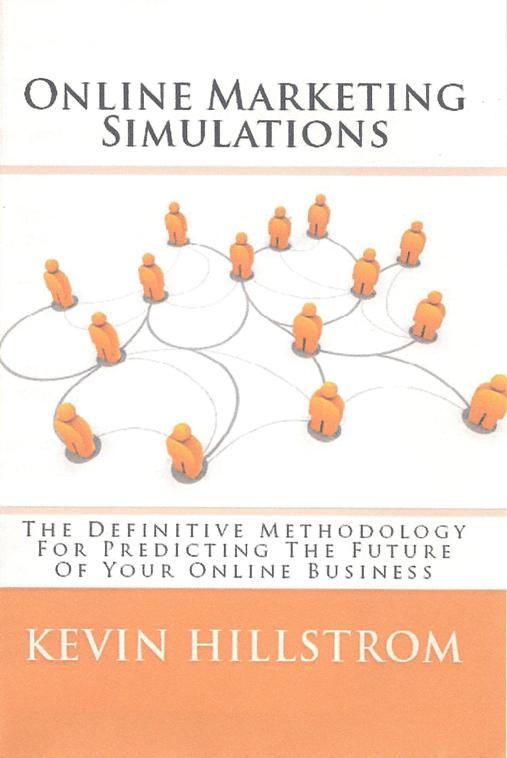Ten Ways We Ruined Multichannel Marketing
Multichannel Marketing used to be called "Direct Marketing". Those were heady times. Now, we've ruined our once-promising method of selling to consumers and businesses. Let's look at ten ways we ruined what we now call "Multichannel Marketing".
Number 10 = E-Mail And RSS: There was an inflection point in the late 1990s, when e-mail could have been saved, and one in 2004 where RSS could have been saved. We stood by and watched. What would have been nice is the creation of a marketable, non-geeky, non-technical solution that the customer could have pulled into her inbox. Obviously, that solution is RSS. But who trusts a three-letter acronym that has no meaning to anybody? Allegedly, we're brilliant marketers. But we couldn't market a technology that allows the customer to pull whatever she wants into a secure, trusted inbox folder, without interference from twenty-four spam-based messages. E-mail and RSS could have replaced direct mail as the best way to drive volume, had they been managed differently. We're told that E-mail has the best ROI, yet since the advent of the tool, our businesses are not one bit more profitable. We failed.
Number 9 = Short Term Focus: Ignore the pointless arguments about whether lifetime value should sit at the "C-Level" table. Once you've sat at the "C-Level" table, you'll find it isn't very glamorous. We do almost everything to drive business today. We gear most of our marketing measurement around how an e-mail campaign did at driving click-thru rates over a twelve hour period of time, or how a search term drove conversion during a session. Our management teams are given incentives to increase sales and profit today --- incentives that far exceed their actual contributions.
Number 8 = Integration: We were told that we had to align marketing and merchandising across channels, because the customer demanded it. Did your customer demand it, or did you read this in a $279 research report? If the latter is true, who benefits, the customer, or the one producing the $279 research report? We made huge mistakes aligning our marketing and merchandising. First, in order to align these areas, we realized we didn't have the systems infrastructure to align areas properly. Second, putting the systems infrastructure in place to meet this vision requires money --- so instead of investing in the customer, we invest in a systems infrastructure, benefiting vendors. Third, to align marketing, we made compromises that homogenize marketing, lowering response within any one channel.
Number 7 = Shipping: We butchered shipping and handling. We charged our customers $16.95 for a service that they can employ UPS to do for $10.95. Customers aren't dumb, they know they are being gouged. Worse, we offered customers free shipping, charging them nothing for a service they can employ UPS to do for $10.95. We trained the customer that charges for shipping are evil. We trained the customer to expect to receive merchandise for free, though it may be unprofitable at the scale of business we manage. Why didn't we train the customer to expect to receive merchandise for $5, or $7? Why didn't we build an equitable partnership with our customers?
Number 6 = Career Development: Who is training tomorrow's multichannel leaders? By default, our merchandisers are taking control of the future of multichannel marketing. Merchandisers have to sell products across all channels. They learned how to do this without having the systems infrastructure to be effective. While everybody else defended their own turf, becoming experts at managing a niche, merchants became the rulers of the roost. It will be a decade before anybody else has the multichannel knowledge and experience to rival our merchandising co-workers. Why can't I buy a $279 research report on how to manage career development in a multichannel marketing environment?
Number 5 = Channel Dominance: If you worked for a company that has a catalog channel, an online channel, and a retail channel, you know what I am talking about. Dell is about to learn all about channel dominance. Dell will learn that customers who are given a choice between buying something online or in a retail setting will inevitably migrate to the retail setting. Over time, this mitigates all of the advantages of the direct-to-consumer channel. The dominant channel, and the sales rhythm of the dominant channel, require the other channels to "support" it. Anytime one channel "supports" another, it becomes compromised. Why do you think Macy's, Neiman Marcus and Nordstrom are in an arms race to build-out their online infrastructure? Each business wants to use the online channel to "support" their store channel. Anytime the online/catalog channel "supports" stores, sales in the "support" channel suffer, degrading the potential of multichannel marketing. Eventually, the catalog becomes a "brand advertising" tool. Eventually, the online channel becomes a "dictionary" or "encyclopedia" used by the customer to purchase store product. Eventually, "direct marketing" as an art/craft is compromised, unrecognizable.
Number 4 = Marketing's Digital Divide: What a waste. Catalogers honed their craft over more than a hundred years. Then online marketers invented a craft over a decade. Brands use both tools to grow sales. But the skillsets used in each craft are different, and we haven't cross-pollinated folks how to work with both crafts. Go to a NEMOA or Catalog conference, and you'll bask in the knowledge of a generation of catalog experts who are in their 40s, 50s and 60s. Go to any online-based conference out west, and you'll bask in the energy of a generation of online marketing experts who are in their 20s, 30s and 40s. Different channels, different tools, different generations, different mindsets, same objective. It could have been different, had the dot-com explosion of a decade ago not divided all of us so much.
Number 3 = Profit: The all-mighty quest to achieve 6.9% pre-tax profit instead of 6.2% pre-tax profit, to drive "shareholder value", causes us to make decisions that look good in the short-term. We send remails of catalogs, wrapping a new cover and back page around the same creative, hoping our customers won't notice. Private equity buys numerous companies, integrates backend and management operations to reduce expense, and then cross-pollinates the housefiles of each company to save on rental/exchange/co-op expenses (I lived through a version of this at Eddie Bauer). Circulation teams outsource the most vital part of their business, customer management, to a random statistician at a compiled list vendor. We ship merchandise overseas to be assembled, then ship it back here, all to lower cost of goods by a dollar a unit. Then we grumble when the worker in Indiana who used to have a job can no longer afford our product because her job was "outsourced" by our very-own company. We farm out call-center activities overseas. How does the customer benefit from all of these activities, long-term?
Number 2 = Google: Multichannel Marketing is doomed to fail in a Google-dominated world. The very thing Google gives us as customers, the very thing we love (relevant choice), is what will destroy the businesses we manage. Today, we love it that Google drives 20% of our website traffic. Once online growth stops, and Google makes changes for no good reason that reduce our traffic from 20% to 14%, what is our recourse? That's the kind of change that gets an Executive fired. That's the kind of change that turns a 6.2% pre-tax profit business into a break-even pre-tax profit business. That's the kind of change that causes you to lay-off your online marketing analyst. That's the kind of power that Google holds over you --- you just don't see it today, because your online volume is growing year-over-year at acceptable rates.
Number 1 = The Punditocracy: There's a reason that some conferences lock vendors out of sessions. Everywhere you turn, some pundit is telling you what you must do to succeed, is telling you why you are a failure, or is beating the living daylights out of the failure of some "brand". All too often, what they tell you to do requires you to purchase their services. All too often, this strategy creates financial and emotional benefit for the punditocracy, not for your business, not for your customer. The punditocracy hijack relevant trends, turning them into "solutions" for perceived failures within you brand. If all of these "solutions" are so fantastic "in today's multichannel world", how come businesses aren't rolling in profit? The punditocracy pushes us toward their vision of the future, not toward a vision of what our customer wants from us. Our failure to shut out the punditocracy, our desire to trust organizations not truly doing things in our best interest, to trust somebody with a perceived "solution" over our own gut instinct, is causing us to lose control over our businesses, to lose control over the expense structure of our business, and to provide a homogenized "solution" to our customers. Worst of all, we did this to ourselves. We're ultimately responsible. If we don't buy into what the punditocracy tells us, they don't stay in business.
Ok, you're turn. In what other ways did we ruin multichannel marketing? Or, maybe you want to defend multichannel marketing --- go ahead, express your point of view.
Labels: Multichannel Retailing, Punditocracy


